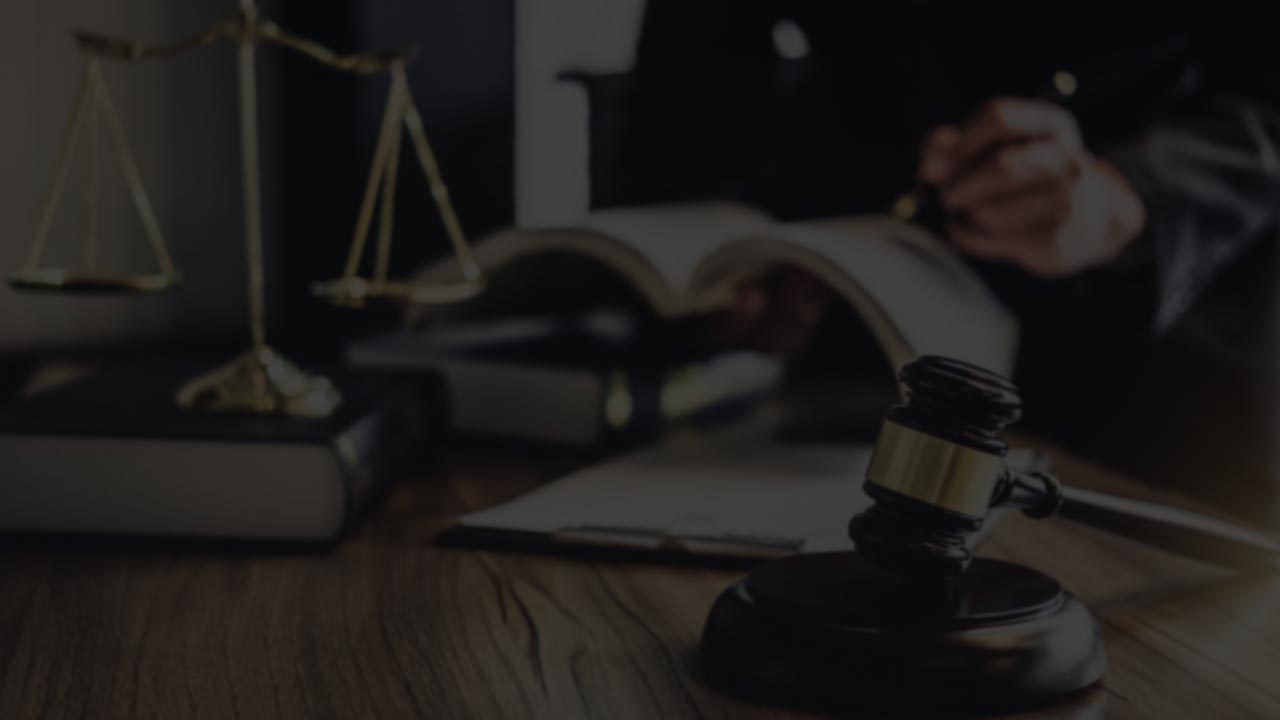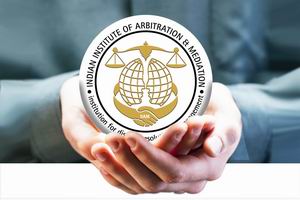Contact Us
FILE DEFEND DOMESTIC AND INTERNATIONAL ARBITRATION CASES
➤➤ FILE or DEFEND ANY DEMAND FOR PAYMENT / REFUND / EXEMPTION AND OTHER ISSUES PERTAINING TO
➤➤ GOODS AND SERVICES TAX CASES :-
Goods and Services Tax under The Central Goods And Services Tax Act,2017 (GST),
- replying the Show Cause Notices of GST Authorities
- taking them further into Courts of Law from the Authorities till High Courts and Supreme Court
Appeals In GST
- A taxable person, who is unhappy with the order passed by an GST adjudicating officer, can appeal against such order to the First Appellate Authority which has to the power to pass a decision or an order under the Act.
The Gst Provides Four-Level Appeal Mechanism To The Aggrieved Taxpayers To Redress Their Grievances I.E.,
- (a) First Appellate Authority
- (b) Appellate Tribunal
- (b) Appellate Tribunal
- (d) Supreme Court
Who Is Liable To Register Under GST Law ?
- If you are engaged in any economic activity, including trade and commerce, Law treats you as taxable person.‘Person’ here includes individuals, HUF, company, firm, LLP, an AOP/ BOI, any corporation or Government company, body corporate incorporated under laws of foreign country, co-operative society, local authority, government, trust, artificial juridical person.
- Any business exceeding turnover of Rs.20 Lakhs in a financial year (Rs 10 lakhs for North Eastern and hill states).
- Every person who is registered under an earlier law (i.e., Excise, VAT, Service Tax etc.)
- A transferee / acquiring person , from the date of such transfer
- Anyone who drives Intra state &inter-state supply of goods
- Non-Resident taxable person
- Agents of a supplier
- Person supplying online information and database access or retrieval services from
- a place outside India to a person in India, other than a registered taxable person
Registration Of GST Is Done By The Type Of Taxable Person (Sec.122)
- Every person has to apply for registration in every State in which he is liable, within thirty days from the date on which he becomes liable to registration.
- Casual/ non-residents should apply at least five days before their commencement of business.
- Registration number in GST will be PAN based and hence, having PAN would be a prerequisite for obtaining registration.
- The assessee must obtain separate registration for each State, as registration under GST will be State-wise,
- The assessee has an option to obtain a separate registration for each of the ‘business vertical’ in the same State
Responsibity Of Collecting GST
- Only a registered taxable person shall collect GST, by prominently indicating the GST amount on tax invoices.
Responsibiltity Of Filing Returns
- Every taxable person under GST is liable to furnish to the statutory authority his returns.
Offenses Under GST (Sec.122-132)
- Supplying any goods/services without any invoices
- Issuing a false invoice without supply of goods/services
- Issuing Invoice using another person’s GST identification number.
- Submitting false information / face financial records or documents while registering with GST
- Submitting fake returns to evade tax
- Not providing relevant information or providing false information during proceedings
- Collecting GST but not submitting it to the Government within 3 months
- Obtaining refund of any CGST/SGST& IGST by fraud
- Taking and/or utilizing input tax credit without actual receipt of goods/services
- Suppressing the sales deliberately to evade tax
- Transporting goods without proper documents with E-way bill
- Not registering under GST though the business is required to be registered under GST Law
- Being an Input Service Distributory, taking or distributing Input Tax Credit in violation of the rules
- Etc……..
Offenses Under GST By Companies, Llps, Hufs And Others (Sec.137)
- For any offence committed by a company, both the officer in charge (such as director, manager, secretary) as well as the company will be held liable.
- For LLPs, HUFs, trust, the partner/karta/managing trustee will be held liable.
Penalty For Offenses Committed Under GST Can Be Both Corporeal (Imprisonment) Or Pecuniary (Monetary), Civil Or Criminal
➤➤ EXCISE AND CUSTOM DUTY CASES
Excise and Custom Duty under the Central Excise Act,1944 and Customs Act,1962
- Replying the Show Cause Notices of Excise / Custom Authorities
- Challenging illegal search / Seizure
- Taking them further into Courts of Law from the Authorities till High Courts and Supreme Court
Appeals In Excise / Customs Law
- Aggrieved by imposition of Duty / Penalty / Interest, you can appeal to the First Appellate Authority which has the power to pass a decision or an order under the Act.
The Excise And CustomLaw Provides Four-Level Redressal Mechanism To The Aggrieved I.E.,
- First Appellate Authority
- Appellate Tribunal- CESTAT, Custom Excise Service Tax Appellate Tribunal
- High Court and
- Supreme Court
The Offenses And Penalties In Excise Duties Are Dealt In Sec.9 The Central Excise Act,1944
- Contravenes any of the provision of Section 8
- Evading the payment of any duty under this Act
- Removingor concerning in removing an excisable good against the provisions of the Act
- Acquiring, possessing, transporting, depositing, keeping ,concealing, selling or purchasing, or in any other manner dealingknowing that, the goods are liable to confiscation under the Act
- Not providing information or providing false information, which is required to be furnished under the Act.
Offenses By Companies:–
- Every person in charge of and responsible to the conduct of the business of the Company as well as the company at the time the offense was committed, is liable for punishment. (Sec.9AA(1))
- Any person or Director, Manager, Secretary or other officer of the Company is liable when, he is attributable with commission of such offense
Penalties :
- Where any duty of Excise has not been levied or paid or has been short levied or short-paid or erroneously refunded, by the reason of – (a) fraud (b) collusion (c) any willful mis-statement or (d) suppression of facts are liable to pay penalty ( Sec.11A(4)
Excise duty is levied on manufacture of goods and levied at the time of removal of goods. Whereas, GST will be levied on supply of goods and services. In GST, Excise duty’s place has been taken by Central GST as excise is levied by Central Government and revenue from CGST will also be of Central government.
Post implementation of GST, the following Excise duties/taxes have been replaced by GST.
- At the Central level:
- Central Excise Duty
- Additional Excise Duty
- Service Tax
- Additional Customs Duty commonly known as Countervailing Duty, and Special Additional Duty of Customs
- Special Additional Duty of Customs
At the State level:
- Value Added Tax/ Commercial Sales Tax / TIN
- Entertainment Tax
- Octroi and Entry tax,
- Purchase Tax,
- Luxury tax, and
- Taxes on lottery, betting and gambling.
- Fat tax imposed in Kerala
Though It Is True That Most Major Indirect Taxes Will Be Subsumed Under GST, There Are Still Certain Products On Which The Indirect Taxes Will Not Be Covered Like
- Tax on items containing alcohol :
- Tax on Petroleum products
Offenses under The Customs Act,1961
- Any act or omission leading to confiscation of goods which are either
- improperly importing goods (Section 111) or
- improperly attempting to export goods (section 113).
Penalties :
- Monetary penalties and confiscation can be ordered by departmental authorities themselves. These are ‘quasi-judicial’ powers.
- Additional Commissioner or Joint Commissioner is authorised to adjudicate the cases without any limit of amount.(Sec.122)
The Customs Act, 1961 envisages two types of punishments i.e. (a) Civil Liability : Penalty for violation of statutory provisions involving a penalty of money and confiscation of goods. (b) Criminal Liability : Criminal punishment is of imprisonment and fine; which can be granted only in a criminal court after prosecution. Both penalty and punishment can be imposed for same offence
➤➤INCOME TAX CASES
Income Tax Under Income Tax Act,1961
- Replying the Show Cause Notices of Income Tax Authorities
- Challenging illegal Search / Survey / Seizure
- Taking them further into Courts of Law from the Authorities till High Courts and Supreme Court
Appeals In Income Tax Act, 1961
- Aggrieved by imposition of Tax / Penalty / Interest or passing of any order by the Assessing Officer, you can appeal to the First Appellate Authority
The LawProvides Four-Level Redressal Mechanism To The Aggrieved I.E.,
- First Appellate Authority
- Appellate Tribunal- CESTAT, Custom Excise Service Tax Appellate Tribunal
- High Court and
- Supreme Court
Default In Complying With Provisions Of Or With Conditions Prescribed Under The Income-Tax Act Would Attract Certain Penalty And In Critical Cases Prosecutions As Well. Income Tax Act, 1961 Provides For Following Offenses And Penalties
- Removal, parting with or otherwise dealing with books of accounts, documents, money, bullion, jewellery or other valuable article or thing put under restraint during the search. [Section 275A]
- Fraudulent removal, concealment, transfer or delivery of any property or any interest in the property with the intention to thwart recovery of tax. [Section 276]
- Liquidator or Receiver of a company not giving notice of his appointment to the Assessing Officer or not setting apart the amount notified by the Assessing Officer, or parting away of company’s properties against Income-Tax provision. [Section 276A]
- Failure to enter into written agreement or failure to furnish the statement of immovable property intended to be transferred u/s.269UC, or failure to surrender or deliver the property u/s.269UE, purchased by the Appropriate Authority or doing or omitting to do anything u/s.269UL, which will have the effect of transfer of property without the permission of the Appropriate Authority (under the provisions of Chapter XX-C) [Section 276AB]
- Not paying the TDS Tax Deducted Source amount to the credit of the Central Government [Section 276B]
- Failure to pay the TCS tax collected at source. [Section 276BB]
- Willful attempt to evade any tax, penalty or interest [Section 276C(1)]
- Willful attempt to evade the payment of any tax, penalty or interest levied under Income Tax Act. [Section 276C(2)]
- Willful failure to furnish in due time return of income. [Section 276CC)]
- Failure to furnish return of income in Search Cases as required under section 158BC [Section 276CCC]
- Willful failure to produce accounts and documents as directed by issue of notice under section 142(1) [Section 276D]
- Willful failure to get the accounts audited as directed by the Assessing Officer under section 142(2A). [Section 276D]
- Making of a statement in verification or delivery of an account or statement which is false and which the concerned person knows or believes to be false or does not believe to be true. [Section 277]
Abetting Or Inducing Another Person To Make And Deliver An Account Or Statement Or Declaration Relating To Any Taxable Income Which Is False And Which He Either Knows Or Believes To Be False. [Section 278]
Income Tax Is Applicable To Be Paid By Individuals, Corporates, Businesses, And All Other Establishments That Generate Income. The Collection, Recovery, And Administration Of Income Tax In India Is Regulated By Income Tax Act, 1961.
Income Tax Is Paid By
- Every individual person, irrespective of Age, Colour, Caste, Creed etc.,
- Hindu Undivided Family, (HUF)
- Association of Persons, like Societies, Trusts, Co-Operatives, Trade Unions etc.,
- Body of Individuals,
- Companies,
- Corporate firms,
- Local Authorities and
- Any other artificial juridical persons that generate income on a regular basis.
Taxes Are Calculated On The Annual Income Of A Person, And An Annual Cycle Of A Year In The Eyes Of The Income Tax Law. This Is Applicable From The 1st Of April And Ends On The 31st Of March Of The Next Calendar Year. The Law Has Recognized These Years As “Previous Year” And “Assessment Year”.
The Year In Which Income Is Earned Is Called Previous Year And The One In Which It Is Charged To Tax Is Called Assessment Year.
Taxes Are Collected By The Government In Three Ways:
- Voluntary payment by taxpayers to designated banks, like advance tax and self-assessment tax.
- TDS or Taxes Deducted at Source are the ones which is deducted from your
- monthly income, before you receive it.
- TCS or Taxes Collected from Source.
There Are Three Modes Built In The Fiscal Legislation For Encouraging Tax Compliance:
- Charge of Interest,
- Imposition of penalty
- Launching of prosecution against tax delinquents.
- While charging of interest is compensatory on character, the imposition of penalty and institution of prosecution proceedings act as strong deterrents against potential tax delinquents.
Expertise in assistingreplying show cause notices, appealing them before appropriate authorities so also, revised by appropriate High Courts and subsequently in Supreme Court












